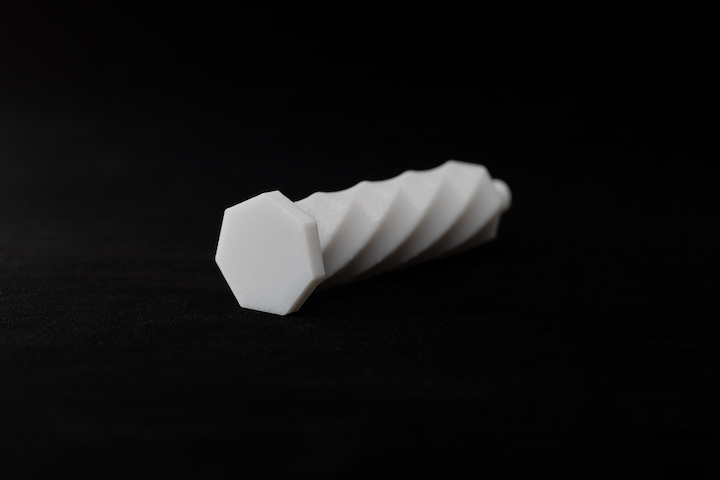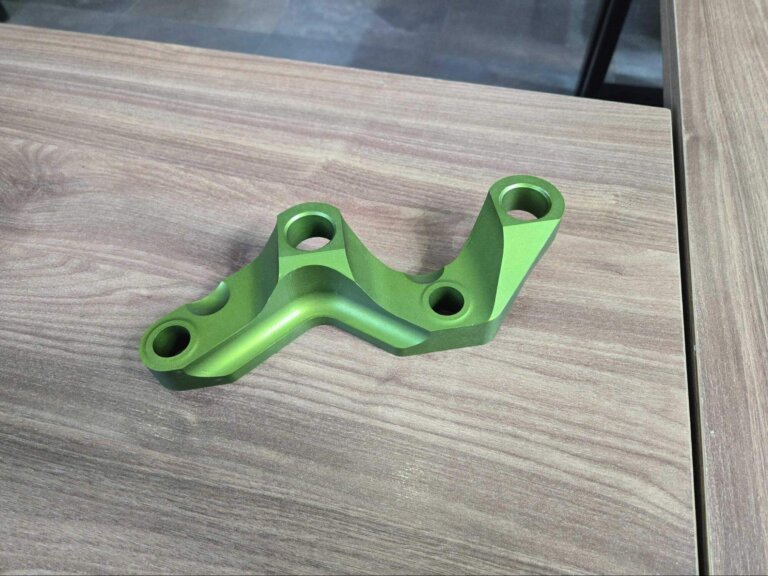Polycarbonate (PC) is a strong and durable 3D printing material known for its high impact resistance, heat resistance, and optical clarity. It’s often used in applications where toughness and resilience are essential. Here are some common applications for Polycarbonate (PC) in 3D printing:
Functional Prototypes: PC is frequently used to create functional prototypes for products and components that require high mechanical performance, impact resistance, and durability.
End-Use Parts: It is suitable for producing end-use parts and components across various industries, including automotive, aerospace, and consumer goods.
Automotive Components: PC can be used to manufacture automotive parts such as interior trim, dashboard components, brackets, and functional prototypes of engine components.
Aerospace Components: In aerospace applications, where materials must meet stringent performance standards, PC can be employed for producing components like ducts, brackets, and housings.
Electrical and Electronic Enclosures: PC is used to create enclosures and housings for electrical and electronic devices, providing protection against impact and environmental factors.
Sporting Goods: It is suitable for manufacturing sporting goods like helmet shells, protective gear, and equipment components that require impact resistance.
Medical Device Components: PC can be used to produce certain medical device components, such as housings for diagnostic equipment and durable prototypes for surgical instruments.
Custom Manufacturing Tools: Manufacturers use PC to create custom manufacturing tools, jigs, fixtures, and assembly aids that require strength and durability.
Display and Signage: PC’s optical clarity makes it useful for creating displays, signage, and marketing materials, especially those requiring impact resistance.
Safety Glasses and Eyewear: Due to its optical properties and impact resistance, PC is used to manufacture safety glasses, goggles, and eyewear lenses.
Lighting Components: PC is employed for producing components like lenses, covers, and diffusers for lighting fixtures, including LED lighting.
Transparent Prototypes: It is used for creating transparent or translucent prototypes and components, such as windows, lenses, and light guides.
Industrial Equipment: PC can be used to manufacture parts used in industrial equipment and machinery that require resistance to impact and heat.
Consumer Electronics: In the production of consumer electronic devices, PC is used for creating casings, enclosures, and screens, providing both toughness and optical clarity.
Custom Enclosures and Housings: PC is employed to create custom enclosures and housings for various applications, including specialized machinery and equipment.
Low-Volume Production: PC is suitable for low-volume production runs of parts and components, offering a balance of strength and ease of manufacturing.
High-Temperature Applications: It is used in applications that require resistance to high temperatures, such as under-the-hood automotive components.
Water-Resistant Parts: PC’s resistance to moisture makes it suitable for applications exposed to water or humidity.
Polycarbonate’s combination of strength, impact resistance, heat resistance, and optical clarity makes it a versatile material for a wide range of industrial, automotive, consumer, and functional applications. It is particularly well-suited for parts that need to withstand tough environmental conditions and mechanical stress.









